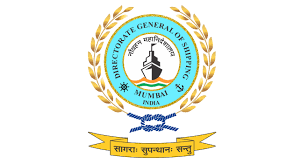
India’s Maritime Transformation: e-Samudra, Sustainability & Vision 2047
NEW DELHI : The maritime sector is a cornerstone of India’s economy, with an extensive 11,000-kilometer coastline, 12 major ports, and over 200 minor ports strategically positioned to facilitate global trade. Handling 95% of the country’s cargo volume and 75% by value, India’s shipping industry underpins its economic growth and energy security. Key initiatives such as Maritime India Vision 2030, Sagarmala, and PM Gati Shakti aim to expand port capacities, improve logistics, and enable seamless multimodal connectivity—driving India toward a sustainable, competitive maritime future. The vision targets an increase in cargo handling capacity to over 300 million tons annually.
The government is actively promoting coastal shipping and waterway connectivity through initiatives like Sagar Mala and Amritkal 2047, with a focus on achieving port carbon neutrality—aiming for 60% renewable energy-powered operations. The Directorate General of Shipping (DGS), operating under the Ministry of Ports, Shipping, and Waterways, plays a pivotal role in regulating maritime safety, compliance, and seafarer training, evolving towards a more integrated Maritime Administration.
A significant transformation is underway with the rollout of e Samudra, a comprehensive web-based digital platform designed to streamline and unify maritime operations. Developed by CMS Limited, e Samudra will host over 63 modules covering ship registration, certification, port services, maritime safety, and more, enabling digitized certificates, smart notifications, efficient tracking, and integrated data management. Scheduled for launch in October 2025, it will serve as a single interface for statutory functions, ensuring transparency, speed, and ease of doing business.
Aligned with India’s broader vision of technological advancement and sustainability, e Samudra incorporates cutting-edge tools like geospatial platforms, maritime security systems, and data analytics—facilitating deep decision support and predictive insights. The initiative aims to modernize maritime governance, enhance safety standards in line with IMO regulations like SOLAS and MARPOL, and promote green shipping practices such as LNG adoption and renewable energy use at ports.
The ongoing digital transformation addresses legacy system limitations—fragmented workflows, outdated technology, cybersecurity concerns, and scalability issues—by consolidating functions into a unified, cloud-hosted platform. This transition aims to improve efficiency, reduce manual processes, and foster a customer-centric approach. Stakeholders across national and international players are actively engaged in this process, with comprehensive training and interoperability ensuring smooth adoption.
Supported by the expertise of CMS Computers and guided by national policies like Wiksit Bharat 2047 and Maritime India Vision 2030, the initiative envisions a future where India emerges as a global maritime leader—driving economic growth, ensuring energy security, and advancing sustainable, technology-driven maritime governance.

